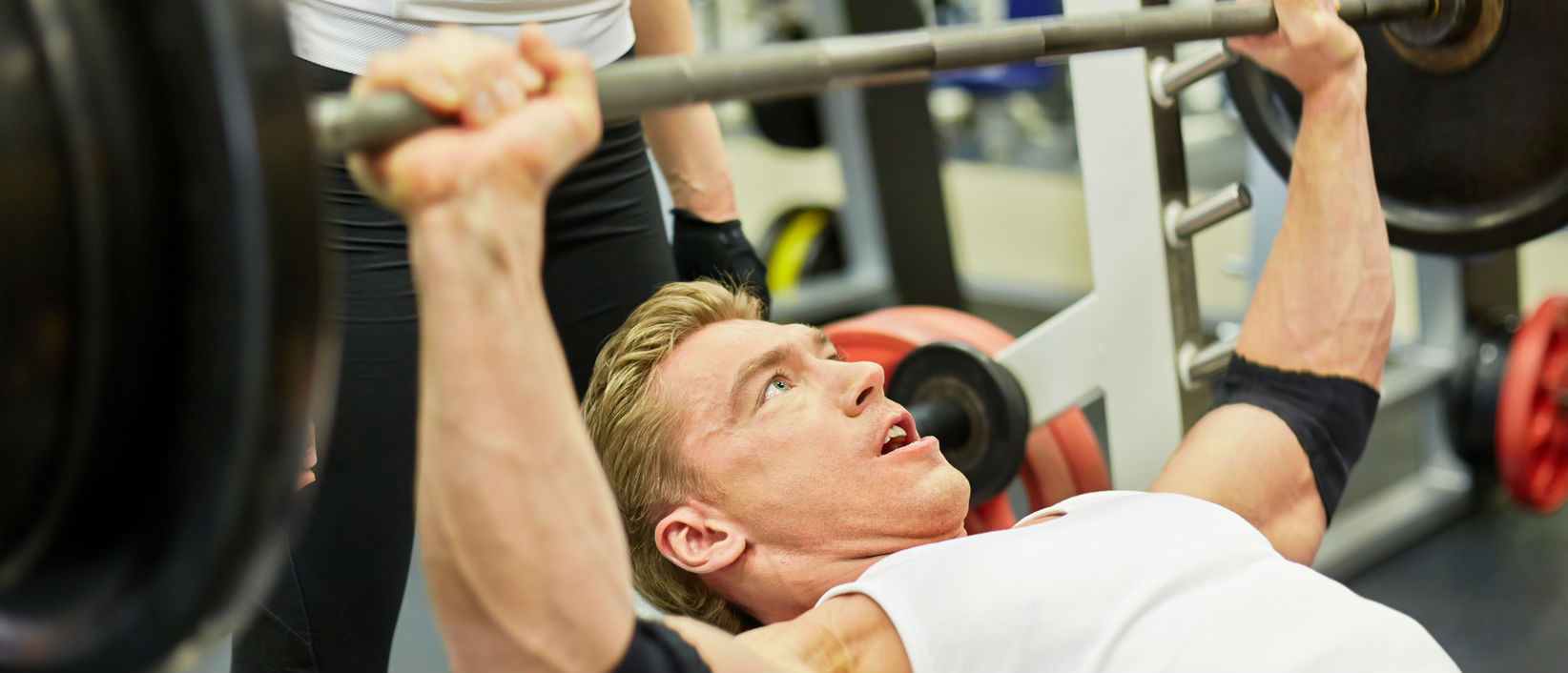 Some powerlifters seem to clearly understand how to make strength gains year after year, or even decade after decade. Those who are able to accomplish this are generally able to do so because of a high training IQ, which simply means that they know how to train in an intelligent manner that translates into consistent progress. Good genetics can help a lifter get strong in a hurry, but it takes more than good genetics to keep on gaining for ten, twenty, or thirty years as some lifters have. This type of consistency takes good training.
Some powerlifters seem to clearly understand how to make strength gains year after year, or even decade after decade. Those who are able to accomplish this are generally able to do so because of a high training IQ, which simply means that they know how to train in an intelligent manner that translates into consistent progress. Good genetics can help a lifter get strong in a hurry, but it takes more than good genetics to keep on gaining for ten, twenty, or thirty years as some lifters have. This type of consistency takes good training.
Who are the lifters who have made long term gains? I will discuss some of these people in this article.
Charles Staley
The first lifter to immediately come to my mind is Charles Staley. Charles certainly did not come on the strength training scene with a big bang or a lot of fanfare. He was more or less average in ability. Nonetheless, he was mentored early on by a great powerlifter named Fred Hatfield, and has not stopped learning from anyone he can. Not only did he learn from others, he learns from his own experience and is open minded enough to try something new when his current training isn’t working.
One of the dangers of becoming a great lifter who has used the same system for years or decades, is that it is easy to conclude that the results were so good that there can’t be any other effective way to train. Some people are bound to a system because of the results it delivered in the past, but what about now? Your body will change over time, and you may find that what worked wonderfully in the past doesn’t work now, but that doesn’t mean that there might not be another form of training that will work now.
If you are not gaining, you have nothing to lose by trying something new. You may have to throw away a lot of old ideas and try something that you don’t think will work. At one point, Charles Staley didn’t think linear periodization would work. He preferred non-linear periodization where heavy, medium and light weights are all used within the same week, but he switched to linear periodization in which different amounts of weight are used in during different phases or blocks of time. He made this change after decades of training and it helped him to become stronger than when he was in his 20’s 30’s and 40’s. Charles is now at his all-time strongest while in his 50’s. He has learned, changed, and adapted according to his current results, not the results from ten or twenty years ago. In my opinion, Charles is smart. He is a good powerlifter and an excellent coach and writer.
At one point, Charles posted his daily workouts on a website called Breaking Muscle. He hasn’t posted his workouts in a while but you can still learn how he trains from his past posts on Breaking Muscle. Click here to go to his posts. Charles also does personal training and online coaching which you can learn about by clicking here. The type of training that Charles does is based on what is often referred to as “phase potentiation.” Garrett Blevins is another fantastic powerlifter who is great at explaining the concept of phase potentiation. If you are interested in his excellent teaching on phase potentiation, you can watch the following videos.
Louie Simmons
Louie Simmons has probably coached more powerlifting champions at West Side Barbell Club than anyone in powerlifting. He is another lifter who progressively became stronger into his 50’s, and he has helped countless others make progress for year after year. Louie is famous for emphasizing the dynamic speed method in combination with single rep max effort training during a given week. The dynamic speed method is usually done for bench and squat or deadlift each week, as is the single rep max effort training, although different variations of these lifts are used each week for the heavy single rep max effort training. The extensive variation of exercises and weight ranges is often referred to as the congregate system. Louie also includes bodybuilding exercises to build up important muscle groups, and believes that special exercises to build up weakness in an individual lifter are important.
If I had to recommend a powerlifting coach for someone who was forced to go into a powerlifting competition within a year and had the privilege of choosing any coach in the world, I would recommend training at Westside with Louie. Louie’s website can be accessed here.
Richard Hawthorne
Richard is pound for pound one of the strongest men in the world. I know he only weighs 130 pounds, but it hasn’t stopped him from deadlifting well over 600 pounds (almost 5 times his bodyweight). He claims to be a natural lifter who doesn’t take steroids or PED’s, and I tend to believe him. In my opinion, Richard just plain knows what’s going on in his body when it comes to training. He does very simple routines, but is a master at combining lots of warm up volume with a few heavier sets into the same workout. Richard is a huge proponent of using precise exercise technique and he knows how to train hard enough without overtraining, which is a huge key to training success. He claims his approach to knowing how much weight to use from one set to the next is somewhat instinctive, but his instincts are uncanny and translate into results, which is a sign of a high training IQ. You can visit Richard’s youtube page by clicking here.
Boris Sheiko
Boris Sheiko is recognized as one of the greatest, if not the greatest lifting coach in Russia, and the coaches and lifters from Russia are generally considered to be among the best in the world. He has produced one great lifter after another including Kirill Sarychev who has the biggest raw bench in the world with a bench of 738 pounds. You don’t achieve the results that Sheiko has achieved without a high coaching and training IQ. Sheiko’s approach to training would be considered as high volume and moderately high frequency by American standards. You don’t jump into his training routines, you must work your way into them or you will end up over trained and exhausted. He takes a long term approach that is very systematic, individualized, and somewhat complicated. Nonetheless, he is someone that you can learn from and you can visit his website by clicking here.
In the next article, more powerlifters and coaches with a high training IQ will be discussed. Until then, best of training to you.
